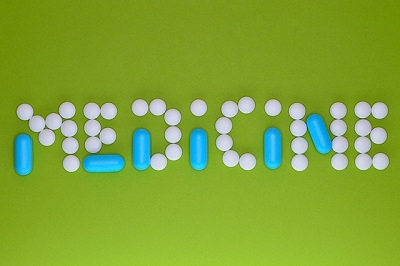How Can Patients Tell That Prostatitis is Completely Gone?
Prostatitis, especially chronic prostatitis, is difficult to cure and is highly prone to recurrence. So, how can patients determine whether prostatitis has returned to normal?

To determine whether prostatitis is gone, firstly, patients can judge whether their apparent symptoms have disappeared; secondly, they can judge according to the routine examination of prostate fluid, bacterial culture, prostate palpation, and other examinations.
The apparent symptoms like urinary frequency and urgency have disappeared, the white blood corpuscles in the prostate fluid have returned to normal, lecithin bodies have increased significantly, and there is no obvious pain or discomfort in the palpation process. If so, it means that prostatitis has gone.
1. Apparent symptoms disappear.
Prostatitis patients will have frequent urination, urinary urgency, discomfort, lower abdominal distension, perineal distension, back pain, lumbosacral pain and other symptoms. After the treatment, if patients no longer have the symptoms mentioned above, their mental state returns to normal, and the degree of lesions and the improvement of the external genitalia can be directly observed through the naked eye, which suggests that the patient's prostatitis is improved. This is one of the key criteria for being clinically cured.
2. The results of the examinations are normal.
The routine examination of prostate fluid mainly includes white blood corpuscles and lecithin. After the examination, the patient's white blood corpuscles are expected to return to the normal range. The white blood corpuscle results are still positive for some patients with prostatitis after treatment. But lecithin microsomes increase significantly compared to those before treatment, which means the treatment is effective.
It is also important to do a bacterial culture of the prostate fluid. After effective anti-infection treatment, the bacterial culture will be negative, except for the anterior part of the male urethra and the surface of the skin of the external genitalia, which may still have a small amount of bacteria or other non-pathogenic microorganisms. The specimen from the prostate or other internal genital organs cannot detect any disease-related live pathogens; neither can we find pathogens that have been detected before the treatment, nor can we detect new pathogens and potential pathogens, such as the L-type bacteria.
In addition, the prostate should be normal in size and soft on palpation with no tenderness or hardness and have a distinct central sulcus and normal skin temperature. Or the patient's prostate is expected to be normal in size and shape after an ultrasound examination.
If the patient's results are normal, another key criterion of being clinically cured has been met. Patients who have met the criteria of being clinically cured should not stop daily maintenance even if the symptoms have disappeared.
Don't be sedentary. Sitting for a long time will lead to poor blood circulation in the lower body, easily compressing the prostate gland and affecting the lower body's heat dissipation and air permeability. In this case, people are more likely to be infected by germs and cause prostatitis.
The most important thing is to stop smoking and drinking and not stay up late at night. If you have the habit of smoking and drinking, you must quit. You can drink a small amount of alcohol instead of alcoholism. Be careful not to stay up too late, as staying up too late can be very harmful, not only to the health of the prostate but also to the overall health of the body.
Eat less spicy food and drink less carbonated drinks. Some people like heavy tastes, overeating salty and spicy food, and like to drink carbonated beverages. These bad eating habits will stimulate the prostate. The males should keep a light diet and eat fewer foods that will hurt the prostate, especially when infected with prostatitis. They should also drink more water and eat more vegetables and fruits.
Control the number of sex visits. Excessive frequency of sexual intercourse can bring great damage to the prostate. It will make the prostate often in a state of swelling and congestion, making it easier to be infected by germs and causing inflammation.
Recommended Readings:
At What Age Are Men More Prone to Prostatitis? Are You One of Them?
Common Queries About Prostatitis Treatment: Frequently Asked Questions
Afraid to Drink Water? "Dehydration" is The Enemy of Chronic Prostatitis!



